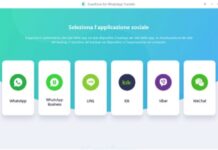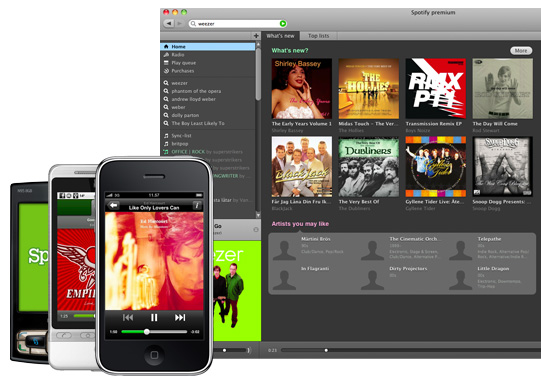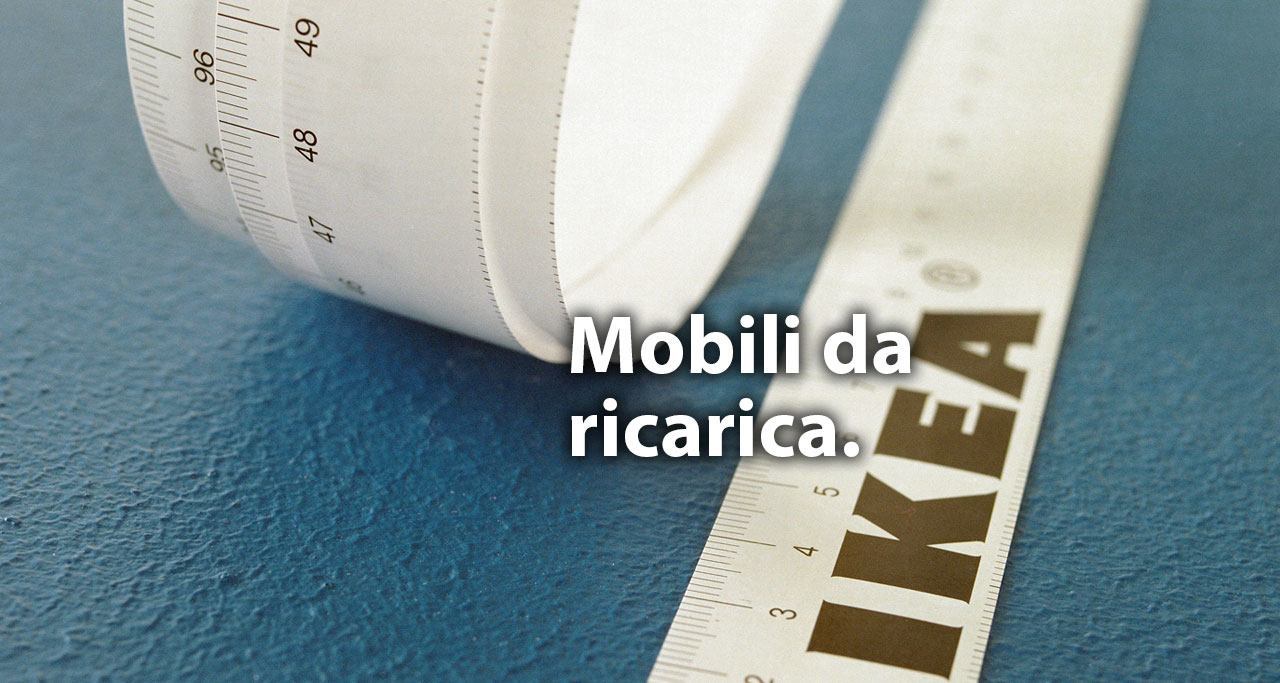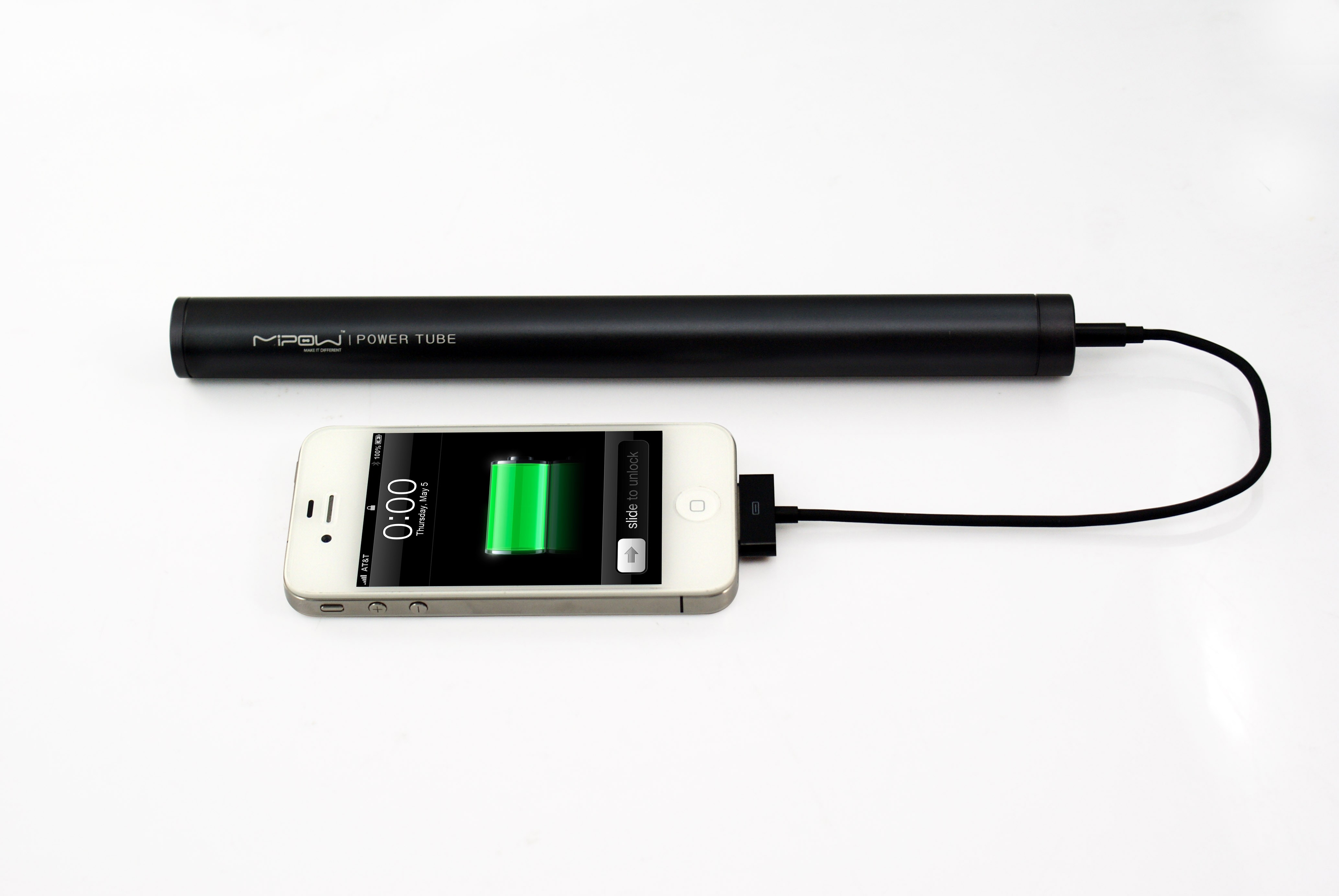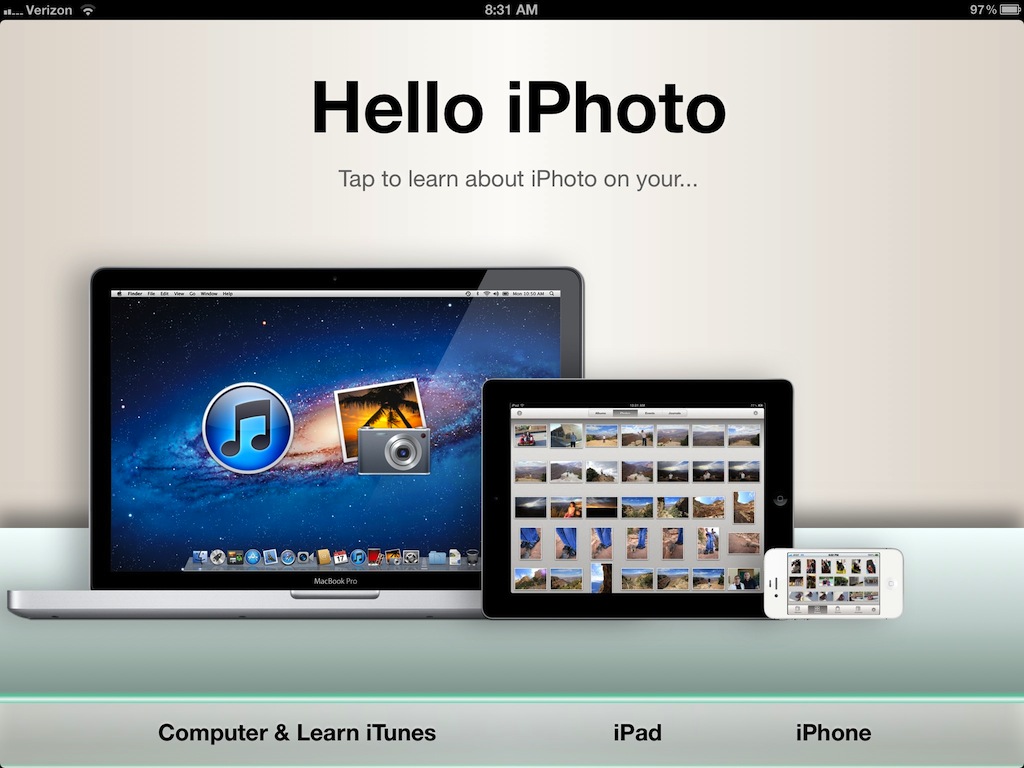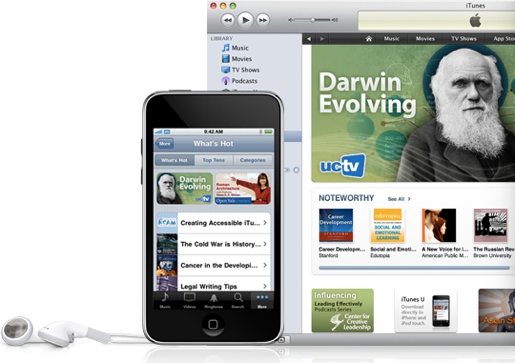Qualche giorno fa, la senatrice Elizabeth Warren del Massachusetts aveva accusato Apple, Amazon e Google di sfruttare le loro dimensioni sul mercato per “ridimensionare la concorrenza”, ricevendo alcuni consensi da parte dell’industria. Spotify, in particolare, aveva rilasciato un commento pubblico riguardante Apple, e la Casa di Cupertino ha scritto una lettera all’azienda per rispondere nella giornata di ieri.
Di seguito il commento (tradotto) di Spotify, come riportato da Re/Code:
Per lungo tempo, Apple ha usato il suo controllo su iOS per annientare la concorrenza in campo musicale, alzando i prezzi dei suoi concorrenti, proibendoci di mostrare ai nostri clienti i prezzi più bassi e concedendosi vantaggi ingiusti sulla sua piattaforma in qualunque campo, dallo schermo di blocco a Siri. Ci si rende conto che qualcosa non va quando Apple guadagna di più da un’iscrizione a Spotify che non da una a Apple Music, senza condividere nulla con l’industria musicale. Vogliono avere la loro torta e mangiare anche quella degli altri.
Le critiche dell’azienda non potevano passare inosservate agli occhi di Apple, che ha risposto nella giornata di ieri con una lettera (rimediata da BuzzFeed e riportata da iClarified) redatta da Bruce Sewell e indirizzata a Horacio Gutierrez di Spotify.
Di seguito la lettera completa in lingua originale, con la traduzione di qualche passaggio saliente in chiusura:
—-
Dear Horacio,
Thank you for your letter. As a valued developer in the App Store, we’re disappointed with the public attacks you’ve made and appreciate the opportunity to set the record straight.
There can be no doubt that Spotify has benefited enormously from its association with Apple’s App Store. Since joining the App Store in 2009, Apple’s platform has provided you with over 160 million downloads of your app, resulting in hundreds of millions of dollars in incremental revenue to Spotify. That’s why we find it troubling that you are asking for exemptions to the rules we apply to all developers, and are publicly resorting to rumors and half-truths about our service.
Our guidelines help competition, not hurt it. The fact that we compete has never influenced how Apple treats Spotify or other successful competitors like Google Play Music, Tidal, Amazon Music, Pandora or the numerous other apps on the App Store that distribute digital music.
We have always believed that competition makes us all better. It drives the best products and services for our customers. We’ve invested a tremendous amount so developers have the best ecosystem for creating and distributing apps. You know this because Spotify has profited greatly from your use of the App Store we developed.
Our investment in the App Store is not trivial — any great retailer will tell you there is an incredible amount of effort that goes into maintaining their store. However, if a customer chooses to sign up for a digital product outside of the App Store the developer does not pay us anything, and their content will still work on Apple devices. To imply that Spotify should not have to pay to avail itself of the benefits of Apple’s hard work, just as every other developer does, would give you a tremendous advantage over other developers. It’s simply unfair and unreasonable.
Our guidelines apply equally to all app developers, whether they are game developers, e-book sellers, video-streaming services or digital music distributors; and regardless of whether or not they compete against Apple. We did not alter our behavior or our rules when we introduced our own music streaming service or when Spotify became a competitor. Ironically, it is now Spotify that wants things to be different by asking for preferential treatment from Apple — in essence arguing that because we compete Spotify should be treated differently, given waivers and exemptions from the rules that pertain to all other developers on the App Store. We disagree.
Apple introduced the in-app purchase feature in the App Store to provide an easy, seamless and secure way for customers to purchase content. The feature also benefits developers by allowing them to more easily monetize their apps through easier customer acquisition. Thousands of app developers have taken advantage of the in-app purchase feature, including Spotify. And ever since the in-app purchase feature was made available, App Store rules have prohibited developers from redirecting customers inside of an app to purchase digital content or subscriptions outside of the app to avoid paying Apple’s standard commission.
We just recently introduced a new revenue split for subscriptions designed to help all developers keep even more of their service revenue stream. Within a subscriber’s first year, the traditional 70/30 split applies, but after a year of paid service with a subscription, an 85/15 share split kicks in. All current subscriptions are eligible — if developers have subscribers they have already retained for over a year, the 85/15 split starts immediately.
Our team has been incredibly responsive. Shortly after Spotify submitted its app on May 26, our team identified a number of issues, including that the in-app purchase feature had been removed and replaced with an account sign-up feature clearly intended to circumvent Apple’s in-app purchase rules. That feature exists only for the purpose of avoiding having to pay Apple for your use of the App Store by emailing customers within hours, directing them to subscribe to Spotify on its website. A clear violation of the terms every other developer adheres to. During a number of discussions between our team and Spotify, we explained why this sign-up feature did not comply with our guidelines and requested you resubmit a compliant version of the app. On June 10, Spotify submitted another version of the app which again incorporated the sign-up feature directing App Store customers to submit an email address so they could be contacted directly by Spotify in a continued attempt to get around our guidelines. Spotify’s app was again rejected for attempting to circumvent in-app purchase rules, and not, as you claim, because Spotify was simply seeking to communicate with its customers.
As far as l can see the Spotify App currently up on the App Store is still in violation of our guidelines. I would be happy to facilitate an expeditious review and approval of your app as soon as you provide us with something that is compliant with the App Store’s rules.
There is nothing in Apple’s conduct that “amounts to a violation of applicable antitrust laws.” Far from it. Apple has continued to innovate with lower pricing for our customers, and a new revenue share model for the developers that have helped make us so successful. We understand you want special treatment and protections from competition, but we simply will not do that because we firmly adhere to the principle of treating all developers fairly and equitably.
Kind Regards,
Bruce Sewell
General Counsel
Apple Inc.
—-
Caro Horacio,
Grazie per la tua lettera. In qualità di un apprezzato sviluppatore nell’App Store, siamo delusi dagli attacchi pubblici che hai rivolto [ad Apple] e apprezziamo l’opportunità di chiarire le cose per bene.
Non c’è dubbio che Spotify abbia beneficiato enormemente dalla sua associazione con l’App Store di Apple. Da quando è stata introdotta nell’App Store nel 2009, la piattaforma di Apple vi ha fornito oltre 160 milioni di download per la vostra App, con il risultato di centinaia di milioni di dollari di profitto aggiuntivi per Spotify. È per questo che troviamo preoccupante che stiate chiedendo un’esenzione dalle regole che applichiamo a tutti gli sviluppatori, e che si presentano pubblicamente in forma di voci e mezze-verità sul nostro servizio.
[…]
Crediamo da sempre che la competizione possa rendere migliori tutti noi. Permette di realizzare i prodotti e i servizi di maggior qualità per i nostri clienti. Abbiamo investito cifre enormi per far sì che gli sviluppatori avessero il miglior ecosistema per creare e distribuire applicazioni. Lo sapete perché Spotify ha guadagnato fortemente dall’utilizzo di AppStore che noi abbiamo sviluppato.
[…]
Le nostre linee guida si applicano nello stesso modo a tutti gli sviluppatori, che si tratti di sviluppatori di videogiochi, venditori di e-book, servizi di video-streaming o di distribuzione musicale in forma digitale; e a prescindere dal fatto che siano o meno in concorrenza con Apple. Non abbiamo modificato il nostro comportamento o alterato le nostre regole quando abbiamo introdotto il nostro servizio di streaming personale o quando Spotify è diventato un concorrente. Ironicamente, è Spotify, adesso, che vuole che le cose siano diverse, chiedendo un trattamento preferenziale da Apple – in sostanza dichiarando che, poiché siamo in competizione, Spotify dovrebbe essere trattato diversamente, con esenzioni dalle regole che si applicano a tutti gli altri sviluppatori su AppStore. Non siamo d’accordo.
[…]
[…] Poco dopo l’arrivo della richiesta per l’App di Spotify il 26 Maggio, il nostro team ha identificato un gran numero di problemi, inclusa la rimozione degli acquisti in-app (e la sostituzione di essa con un servizio di registrazione di un account) con il chiaro intento di aggirare le regole di Apple sugli acquisti in-app. […] Il 10 Giugno, Spotify ha inviato un’altra versione dell’App che introduceva di nuovo la possibilità di registrare un account immettendo un indirizzo email, per essere rimandati al sito di Spotify in un continuo tentativo di aggirare le nostre linee guida. L’App di Spotify è stata rifiutata di nuovo per aver tentato di evitare le nostre regole sugli acquisti in-app, e non (come invece dichiarate voi) perché Spotify stava “soltanto” tentando di comunicare con i suoi clienti.
Per quanto mi riguarda, l’App di Spotify attualmente su App Store è ancora in piena violazione delle nostre linee guida. Sarei felice di fare pressione per una review rapida e per l’approvazione della vostra App non appena ci fornirete qualcosa in concomitanza con le regole dell’AppStore.
Non c’è niente, nella condotta di Apple, che “corrisponde a una violazione delle leggi anti-trust applicabili). Al contrario. Apple ha continuato a innovare con prezzi più bassi per i suoi clienti, e un nuovo modello di entrate economiche per gli sviluppatori che ci hanno aiutati a portare tutto ciò al successo. Ci rendiamo conto che vorreste un trattamento speciale e una protezione dalla concorrenza, ma semplicemente non lo faremo perché siamo fermamente fedeli al principio di trattare tutti gli sviluppatori equamente e in maniera giusta.
Cordialmente,
Bruce Sewell
General Counsel
Apple Inc.
Non c’è modo di sapere in che modo si concluderà lo scambio di lettere tra le due aziende, al momento. Vi invitiamo a continuare a seguire Italiamac per tutti gli aggiornamenti sulla vicenda nel prossimo futuro!





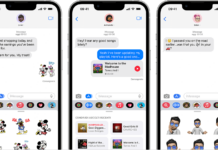





![[Link] AyaNeo Retro Mini PC AM01: un PC compatto in veste retro Macintosh](https://www.italiamac.it/wp-content/uploads/2023/12/AYANEO-Retro-Mini-PC-SIMIL-MACINTOSH-218x150.jpg)

